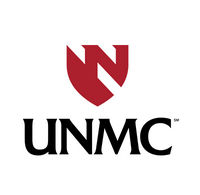预约演示
更新于:2025-05-07
MAP3K1
更新于:2025-05-07
基本信息
别名 MAP3K1、MAPK/ERK kinase kinase 1、MAPKKK1 + [5] |
简介 Component of a protein kinase signal transduction cascade (PubMed:9808624). Activates the ERK and JNK kinase pathways by phosphorylation of MAP2K1 and MAP2K4 (PubMed:9808624). May phosphorylate the MAPK8/JNK1 kinase (PubMed:17761173). Activates CHUK and IKBKB, the central protein kinases of the NF-kappa-B pathway (PubMed:9808624). |
关联
1
项与 MAP3K1 相关的药物靶点 |
作用机制 MAP3K1 inhibitors |
在研适应症 |
非在研适应症- |
最高研发阶段临床前 |
首次获批国家/地区- |
首次获批日期1800-01-20 |
100 项与 MAP3K1 相关的临床结果
登录后查看更多信息
100 项与 MAP3K1 相关的转化医学
登录后查看更多信息
0 项与 MAP3K1 相关的专利(医药)
登录后查看更多信息
1,268
项与 MAP3K1 相关的文献(医药)2025-07-01·Gene
Evaluation of hypoxia pathway genes and serum parameters in new coronavirus pneumonia (COVID-19)
Article
作者: Ozturk, Dilara Altay ; Yilmaz, Senay Gorucu ; Döger, Cihan ; Gunduz, Ayten ; Tanriverdi, Elif Seren ; Delen, Leman Acun ; Pala, Mukaddes ; Oterkus, Mesut
2025-06-01·Animal Bioscience
Integrative and comparative analysis of whole-transcriptome sequencing in circCOL1A1-knockdown and circCOL1A1-overexpressing goat hair follicle stem cells
Article
作者: Wang, Jian ; Zhang, Liuming ; Sun, Xiaomei ; Sun, Wei ; Li, Yongjun ; Wu, Xi ; Dong, Kunzhe
2025-05-01·Indian Journal of Pediatrics
KMT2C Polymorphism in Familial Hypospadias
Article
作者: Dhua, Anjan Kumar ; Singh, Harpreet ; Agarwala, Sandeep ; Almaramhy, Hamdi Hameed ; Sharma, Jyoti ; Yadav, Devendra Kumar ; Sardar, Rahila ; Shamsi, Monis Bilal ; Jain, Vishesh ; Goel, Prabudh ; Kumar, Neeta ; Pandey, Himani ; Kumar, Sourabh
7
项与 MAP3K1 相关的新闻(医药)2024-11-17
摘要:间充质干细胞(MSCs)具有强大的免疫调节和再生特性,因此被认为是基于细胞治疗炎症性和退行性疾病,包括眼病的潜在新治疗剂。MSCs通过邻细胞和旁分泌方式调节所有在炎症性和自身免疫性眼病发展和进展中起病理作用的免疫细胞的表型和功能。MSCs对治疗进行性视神经病变也有很大的希望。MSCs产生神经营养因子,防止视网膜神经节细胞(RGCs)的凋亡细胞死亡,这些神经元将视觉信息从视网膜传导到大脑。由于MSC衍生的外泌体(MSC-Exos)具有纳米尺寸和脂质包膜,它们可以轻松绕过眼睛中的生物屏障,并将MSC衍生的血管活性和神经保护性微小RNA和生长因子传递到受损的RGCs中,增强它们的存活和再生。因此,许多实验和临床研究证明了MSCs和MSC-Exos治疗眼病的疗效。在本章中,我们总结了当前对MSCs及其分泌物在治疗视神经病变、眼损伤和炎症中有益效果的分子和细胞机制的了解。我们还讨论了MSCs成功临床使用的挑战,并提出克服这些挑战的策略,为基于MSCs的眼病治疗铺平了道路。
干细胞微信群
扫描二维码,符合加群要求者,
即可加入干细胞治疗的微信群!
1.引言
间充质干细胞(MSCs)作为具有多系分化能力的自我更新成体干细胞,因其生物学重要性和治疗潜力而在眼科护理专业人员和患者中引起了巨大的期望。许多不治之症的治疗是MSCs研究的焦点,目前,MSC衍生的细胞和分泌因子代表了再生眼科的新希望。由于它们的再生和免疫调节特性,包括自我更新、快速增殖、多系分化以及产生免疫抑制和促血管生成因子,MSCs及其分泌物经常在临床试验中作为治疗炎症性、退行性和缺血性眼病的新治疗剂。
MSCs在再生眼科中的多系分化潜力和治疗潜力可能是它们复杂发育起源的结果。大多数发现支持这样的假设:在胚胎发生过程中,几种亚群的MSCs源自不同的前体细胞。上皮-间充质转化(EMT)衍生的细胞在抗原谱、多能性和归巢能力方面与骨髓来源的MSCs(BM-MSCs)功能相似,因此被提议作为MSCs的可能前体细胞。一些研究表明MSCs起源于神经嵴,提供了Sox1+神经上皮细胞(NECs)是MSCs前体的证据。这一假设得到了MSCs与Sox1+ NECs相似,表达神经生长因子受体,并能在体外分化为神经外胚层(神经元/胶质细胞)的支持。同时,Sox1+ NECs与MSCs相似,可以生成成骨细胞、软骨细胞和脂肪细胞。因此,人们认为Sox1+ NECs代表居住在产前组织中最早的MSCs群体。在产后发育的后期,MSCs可能源自非神经嵴起源的细胞。凭借它们的多能性和自发分化为中胚层起源细胞的能力,来自胚胎背主动脉的侧板中胚层衍生的mesoangioblast细胞被提议为非神经嵴来源的MSCs。一些研究表明血管壁是MSC样干/祖细胞的重要储备库。这些血管衍生的前体细胞,从多个器官分离,产生具有典型MSC标记的细胞,并表现出分化为成骨细胞、软骨细胞和脂肪细胞的能力。此外,MSCs和周细胞在发育、表型和功能特征方面的相似性表明这两个细胞群体源自同一前体细胞。与这些发现一致,很难精确识别和表征血管周围组织中纯MSCs群体。
考虑到复杂的发育起源,以及许多抗原可能在MSC表面表达,国际细胞治疗学会(ISCT)的研究人员集中关注对MSCs特定的形态和功能属性,并设法定义了MSCs表征的最低标准。根据这些标准,MSCs是塑料粘附细胞,具有纺锤形形态,表达CD105、CD73、CD44、CD90、CD166、CD54和CD49b,并且不表达CD45(泛白细胞标记)、CD34(造血细胞标记)、CD14或CD11b(单核细胞标记)、CD79a或CD19(B淋巴细胞标记)和主要组织相容性复合体(MHC)类II分子(专职抗原呈递细胞标记)。MSC特异性标记负责它们的迁移和分化属性。CD105(内皮素,也识别为SH2)是转化生长因子-beta(TGF-β)受体复合体的组成部分,参与MSCs的增殖、分化和迁移;CD73(SH3/4)是一种外酶,通过水解三磷酸腺苷(ATP)调节嘌呤信号;CD44是透明质酸受体,负责MSCs的迁移属性;CD90(Thy-1)调节MSCs的分化;CD166作为血管细胞粘附分子;CD54/CD102是细胞间粘附分子,CD49b(整合素α-2)负责MSCs的粘附和成骨分化。MSCs在体外自发分化为成骨细胞、脂肪细胞和软骨细胞,并在体内产生中胚层组织。
2.根据组织来源的MSCs亚群
MSCs可以从几乎所有产后组织中分离出来,但最常来源于骨髓(BM)、脂肪组织(AT)、脐带(UC)、牙髓(DP)和羊水(AF)。在所有MSCs亚群中,BM-MSCs是最被广泛研究的,并且在实验和临床试验中最常用(Al等人,2022年)。在骨髓中,MSCs调节骨骼的终生周转和生长,代表造血干细胞生态位的重要细胞组成部分。BM-MSCs衍生的成骨细胞促进造血,而BM-MSCs衍生的脂肪细胞抑制造血前体的扩增。BM-MSCs的主要生物学特性,有利于它们的治疗使用,包括体外快速增殖、MHC分子表达减少,因此,有安全的异体移植潜力、长期扩增后基因组稳定性、自发三系(成骨、软骨和脂肪)分化能力,以及抑制有害免疫反应。然而,BM-MSCs的获取涉及骨髓采集,这是一个高度侵入性的程序。因此,人们积极寻找包括AT、AF、UC和胎盘在内的几种替代组织来源以分离MSCs。
AT包含许多MSCs,可以通过吸脂术轻松采集。与BM-MSCs相比,AT来源的MSCs(AT-MSCs)具有相似的表型、更大的增殖能力、更高的脂肪分化潜力,以及受损的成骨和软骨形成。
UC来源的MSCs(UC-MSCs)的收集是一种非侵入性、无痛且安全的程序,没有伦理问题。已从UC的几个区域分离出MSCs,包括华通氏胶、静脉、动脉、UC内衬、亚羊膜和血管周围区域。来自UC不同区域的细胞在增殖率上没有显著差异,重要的是,所有UC-MSCs亚群显示出比BM-MSCs更高的集落形成单位-成纤维细胞频率。关于分化能力,UC-MSCs比BM-MSCs具有更高的软骨分化潜力,但显示出成骨细胞和脂肪细胞分化的延迟和不足。有趣的是,UC-MSCs可能被认为是多能细胞,因为它们表达几个与多能性相关的基因:Oct-3/4、Nanog、Sox-2和KLF4。
AF来源的MSCs(AF-MSCs)是从通过超声引导下进行羊膜穿刺获得的AF样本中分离出来的。因此,AF可以作为MSCs的一个丰富和有利的来源,就潜在捐赠者的数量而言。AF-MSCs的表型和分化潜力与BM-MSCs和胚胎干细胞(ESCs)相似。AF-MSCs在BM-MSCs上表达细胞表面抗原CD105、CD90和CD73。同时,AF-MSCs显示出ESCs的细胞内和细胞外标记物,如Oct-3/4、Nanog、3和SSEA-4以及碱性磷酸酶。应该强调的是,与ESCs相比,AF-MSCs具有稳定的基因型,并且在体内不致瘤,这表明它们有安全临床应用的潜力。
有几条证据表明,来自胎盘组织的MSCs具有优越的细胞生物学特性,如改进的增殖能力、寿命和分化潜力,比来自BM和其他成人组织的MSCs更优。此外,与胎盘来源的MSCs(PL-MSCs)相关的伦理问题应该被忽视,因为胎盘组织通常被认为是医疗废物,可以在不伤害捐赠者或胎儿的情况下回收。重要的是,PL-MSCs比BM-MSCs具有更高的扩增和植入能力。与UC-MSCs和AF-MSCs类似,PL-MSCs表达多能基因,并且可以产生所有三个胚层的细胞。
3.MSCs的免疫调节特性
尽管来自不同组织来源的MSCs具有不同的再生特性,但它们都有强大的免疫调节特性,可以调节所有免疫细胞的表型和功能。MHC类II分子在MSCs的膜上不高度表达,使它们能够在MHC不匹配的接受者和异体移植中进行移植。因此,尽管最初的MSC相关临床前研究主要关注MSC诱导的组织再生,但最近进行的基于MSC的临床研究依赖于MSC依赖的炎症性疾病的免疫调节。通过调节免疫细胞的激活、增殖、成熟、细胞因子产生和细胞毒性,MSCs减轻了由有害先天和适应性免疫反应引起的疾病进展。MSCs产生大量的免疫调节因子(白细胞介素(IL)-10、白血病抑制因子(LIF)、IL-6、TGF-β、生长调节癌基因(GRO)、肿瘤坏死因子刺激基因6(TSG-6)、血红素加氧酶1(HO-1)、吲哚胺2,3-双加氧酶(IDO)、一氧化氮(NO)和前列腺素E2(PGE2)),这些因子主要负责MSCs的免疫调节效应。通过产生TGF-β,MSCs抑制Jak-Stat信号通路的激活,导致G1细胞周期阻滞,减弱T、NK和NKT细胞增殖。IDO是一种由促炎细胞因子(特别是干扰素γ(IFN-γ)和肿瘤坏死因子α(TNF-α)诱导的酶,将色氨酸转化为犬尿氨酸。色氨酸的降解,一种对淋巴细胞增殖至关重要的氨基酸,被认为可以抑制淋巴细胞增殖。通过产生IDO,MSCs抑制T淋巴细胞增殖,并减弱NKT细胞的细胞毒性和细胞因子产生。在组织损伤后,组织驻留的巨噬细胞产生炎症趋化因子和细胞因子,吸引MSCs到伤口部位,在那里它们产生NO抑制免疫细胞。此外,MSC衍生的NO可以增加IDO活性,并增强基于MSC的免疫反应抑制。通过分泌PGE2,MSCs抑制T细胞上IL-2的产生和IL-2受体的表达,减弱它们的增殖,并促进免疫抑制调节性T细胞的产生。此外,MSC衍生的PGE2负责抑制树突状细胞(DCs)的成熟和增加巨噬细胞的替代激活。
除了旁分泌机制外,细胞间直接相互作用(即免疫细胞与间充质干细胞之间的直接细胞间相互作用)对于最佳的基于间充质干细胞的免疫抑制也是必不可少的。免疫调节B7家族成员蛋白(程序性死亡配体1(PD-L1)、程序性死亡配体2(PD-L2)、肿瘤坏死因子家族成员蛋白Fas配体(FasL)和细胞间黏附分子1(ICAM-1)主要负责间充质干细胞依赖的细胞间免疫调节。间充质干细胞调节所有在炎症性眼病发病机制中起关键致病作用的免疫细胞的功能。间充质干细胞通过阻止刺激的T细胞进入细胞周期的S期以及通过介导不可逆的G0/G1期阻滞来抑制其分裂。与间充质干细胞对T细胞增殖的强效抑制作用相比,对T细胞效应器功能的影响相对较小且可逆,特别是对IFN-γ的产生。此外,间充质干细胞对T细胞激活(基于间充质干细胞预处理的T细胞上CD25和CD69表面表达)没有显著影响,似乎不具有抗原特异性,能够跨越MHC障碍,并且针对原发性和继发性T细胞驱动的免疫反应。间充质干细胞还抑制单核细胞分化为未成熟树突状细胞(DCs),在G0期阻断单核细胞细胞周期。间充质干细胞与DCs之间的细胞接触对于基于间充质干细胞的DC成熟调节不是必需的。由于与DCs的交流,间充质干细胞产生可溶性因子,这些因子减轻DCs的成熟并下调共刺激分子的表达。它们抑制DCs中的细胞因子产生,显著降低它们刺激T细胞的能力。B细胞增殖被间充质干细胞衍生的可溶性因子所抑制。B细胞被间充质干细胞抑制是由于细胞周期的G0/G1期被阻断,与T细胞发生的情况类似。间充质干细胞还通过激活B细胞减少趋化因子受体和免疫球蛋白的表达。它们似乎不改变涉及刺激性细胞合作的表面分子,如HLA-DR、CD40和B7共刺激因子,也不抑制TNF-α、IFN-γ、IL-4和IL-10的产生。间充质干细胞显著抑制IL-2刺激的静止NK细胞的增殖,但只部分损害激活的NK细胞的增殖。细胞间接触和可溶性因子如TGF-β、NO、IDO和PGE2是这种效应的原因。同样,以NO和IDO依赖的方式,间充质干细胞抑制肝脏NKT细胞的细胞毒性和炎症细胞因子的产生。间充质干细胞通过分泌免疫抑制因子,抑制炎症性M1型巨噬细胞并促进其转化为替代性的M2型,显著减轻巨噬细胞驱动的炎症。
4.间充质干细胞的血管调节特性
除了免疫抑制因子外,间充质干细胞还产生许多血管调节分子,这些分子在缺血性眼组织中诱导新生血管形成。在缺血性损伤期间,已显示间充质干细胞通过:(a)分泌营养因子;(b)刺激内源性血管内皮再生祖细胞(EPCs);以及(c)免疫调节微环境以增强内皮细胞(ECs)的生存和增殖来促进血管生成。在BM-MSCs的分泌物中检测到广泛的血管生成因子,包括血管内皮生长因子、成纤维细胞生长因子-2、血管生成素-1、单核细胞趋化蛋白-1、白细胞介素-6和胎盘生长因子,这些因子增强血管生成。众所周知,在缺氧条件下,TNF-α和脂多糖以NF-kappa β依赖的方式上调间充质干细胞分泌血管生成因子。由受损内皮细胞产生的转化生长因子α,在间充质干细胞中诱导产生促血管生成因子。为了生长,毛细血管需要降解周围的细胞外基质以允许内皮细胞发芽。基质金属蛋白酶(MMPs)是一组负责降解细胞外基质蛋白的酶。其中一些,包括MMP2、MMP9和MMP14,由间充质干细胞分泌,在间充质干细胞依赖的血管生成调节中发挥重要作用。由于间充质干细胞几乎可以在所有器官的血管周围空间中找到,它们与周细胞的相互作用令人兴奋。周细胞可以被视为能够从MSC血管壁龛迁移到血管管的血管间充质干细胞。它们通过分泌VEGF-A等细胞因子来调节新血管形成。
5.间充质干细胞外泌体(MSC-Exos):细胞外治疗炎症性和退行性疾病的潜在新疗法
大多数间充质干细胞衍生的免疫调节和血管调节因子存在于间充质干细胞来源的50-150纳米大小的细胞外囊泡和外泌体(MSC-Exos)中。MSC-Exos调节间充质干细胞与目标细胞(免疫细胞和实质细胞)之间的细胞内通讯,在间充质干细胞依赖的免疫抑制、组织修复和再生中发挥着重要作用。MSC-Exos膜的脂质双层是血浆膜的一个子集,使MSC-Exos能够轻易穿透组织。MSC-Exos穿越血-视网膜屏障的能力使它们成为基于间充质干细胞治疗眼病的理想治疗剂。MSC-Exos的生产始于反向膜内陷和在多泡体(MVBs)中的处理,随后在MVB-细胞膜融合后释放到细胞间液中。所有MSC-Exos表达一组共同的蛋白质(四跨膜蛋白(CD9、CD63和CD81)、Alix和TSG101),包含间充质干细胞源性信使RNA(mRNA)、微小RNA(miRNA)、生长、免疫和血管调节蛋白,因此,它们负责间充质干细胞在间充质干细胞依赖的组织稳态调节中的有益效应。MSC-Exos源性miRNAs整合到RNA诱导的沉默复合体中,并有效地抑制目标细胞中的基因表达。在来自各种干细胞来源的外泌体中发现的170多种不同的miRNAs中,miR-486-5p、miR-10a-5p、miR-10b-5p、miR-191-5p、miR-222-3p和miR146a是MSC-Exos中最频繁的miRNAs。MSC-Exo源性miR-486-5p调节神经发生,miR-10a-5p和miR-10b-5p防止受损细胞的凋亡,miR-191-5p促进细胞活力并抑制小胶质细胞的凋亡,miR222-3p调节血管生成,miR146a下调Th1淋巴细胞中IFN-γ的表达。在MSC-Exos中发现了370多种蛋白质。MSC-Exos含有调节神经发育和淋巴细胞激活的蛋白质(ADAM9、ADAM10、CACNA2D1和NOTCH2),修复和再生受损组织(WNT4、PAI-1和基质金属蛋白酶-2和9),并且富含调节氧化应激的蛋白质(ATP2B1、ATP1A1和过氧化还原蛋白-1、2、4、6)。MSC-Exos还包含神经营养因子,为受损神经元提供营养支持,并促进轴突再生,对视网膜再生至关重要。作为一种无细胞剂,MSC-Exos解决了与间充质干细胞移植和基于细胞的治疗相关的所有问题,包括移植的间充质干细胞的非预期分化。MSC-Exos的稳定性、生物相容性和低毒性使它们成为治疗炎症性和退行性眼病的有前途的工具。MSC-Exos由于其纳米尺寸和脂质包膜,轻易绕过眼睛中的生物屏障,并将间充质干细胞衍生的血管活性和神经保护性微小RNA和生长因子传递到受损的视网膜神经节细胞(RGCs)中,增强它们的存活和再生。间充质干细胞衍生的因子和间充质干细胞源性分泌物,包括MSC-Exos,调节所有在炎症性和自身免疫性眼病的发展和进展中起致病作用的免疫细胞的表型和功能。此外,间充质干细胞产生神经营养因子,防止RGCs的凋亡细胞死亡,为治疗进行性视神经病变提供了巨大的希望。因此,许多实验和临床研究证明了间充质干细胞和MSC-Exos在治疗眼病中的治疗效果。在本章中,我们总结了当前关于分子和细胞机制的知识,这些机制负责间充质干细胞及其分泌物在治疗视神经病变、眼损伤和炎症中的有益效应。
6.间充质干细胞及其外泌体在治疗自身免疫性和炎症性眼病中的治疗潜力研究进展
干燥综合征(Sjogren’s syndrome, SS)是一种多系统自身免疫性疾病,以淋巴细胞浸润唾液腺和泪腺为特征,导致口干和眼干。Xing和同事使用SS的小鼠模型来确定唇腺来源间充质干细胞外泌体(LGMSC-Exos)在SS治疗中的效果。LGMSC-Exos显著减少了唾液腺中炎症免疫细胞的浸润,并恢复了唾液腺分泌功能。体外实验中,LGMSC-Exos显著降低了来自SS患者外周血单个核细胞(pbMNCs)中激活的、产生抗体的CD19+ CD20-CD27+ CD38+浆细胞的比例。LGMSC-Exo衍生的微小RNA-125b通过调节PR域锌指蛋白1(PRDM1)基因的表达影响浆细胞中的抗体分泌。这些结果确定了PRDM1基因作为基于MSC-Exo治疗SS的潜在细胞内靶标,并为MSC-Exos在SS和其他B细胞介导疾病治疗中的潜在临床应用提供了新的见解。Genç和同事研究了系统性(腹腔内)和局部(直接在下颌下腺和泪腺)注射牙囊来源间充质干细胞(DF-MSCs)在SS小鼠模型中的治疗潜力。DF-MSCs的系统性注射显著减少了脾脏中产生炎症性IFN-γ和IL-17的Th1和Th17细胞的生成和扩张,减少了唾液腺中炎症细胞沉积,并减轻了实验小鼠的腺体组织纤维化。注入下颌下腺和泪腺的DF-MSCs分化为分泌上皮细胞,并显著减少了唾液腺中免疫细胞的浸润。与它们的亲本细胞一样,MSC-Exos也减轻了干眼病(Dry Eye Disease, DED)。Wang和同事使用苯扎氯铵(Benzalkonium Chloride, BAC)诱导的小鼠DED模型,表明脂肪来源间充质干细胞外泌体(AT-MSC-Exos)抑制了凋亡并减少了泪腺中炎症细胞因子(IL-1β, IL-6, IL-1α, IFN-γ, 和TNF-α)的合成。AT-MSC-Exos防止了NLRP3炎症体的激活,并下调了caspase-1, IL-1β, 和IL-18的表达。这项研究的结果揭示了AT-MSC-Exos有效减少了眼表炎症,表明其在治疗DED中的治疗潜力。与这些发现一致的临床设置中获得的结果表明:有效缓解了131名DED患者的DED相关症状(疼痛、干燥、砂砾感、刮擦感、酸痛、刺激、灼热、流泪和眼疲劳)。Regener-Eyes®富含羊水来源间充质干细胞外泌体(AF-MSC-Exos),包含许多免疫调节、血管调节和营养因子,能够绕过生物屏障并有效减轻正在进行的炎症,促进组织修复和再生。d-MAPPS眼科溶液含有白介素1受体拮抗剂(IL-1Ra)、肿瘤坏死因子α的可溶性受体(sTNFRI和sTNFRII)、与生长相关的癌基因γ(GRO-γ)、脂肪酸结合蛋白1(FABP1)和血小板因子4(PF4),这些因子减轻眼炎症,支持泪液稳定性,预防眼表上皮损伤,有助于DED患者眼表上皮屏障的增强修复和再生。d-MAPPS眼科溶液促进了受损睑板腺的再生,并有效减轻了患有睑板腺功能障碍(MGD)的患者的DED相关症状。在d-MAPPS眼科溶液的眼内应用之前,MGD患者的睑板腺导管扩张,而睑板腺扩大且扭曲,结构异常。经过3周基于d-MAPPS眼科溶液的治疗后,睑板腺的形态显著改善,显示出低荧光的葡萄状簇。同样,高荧光的导管和下面的睑结膜表明d-MAPPS眼科溶液在恢复睑板腺和导管形态方面的有益效果。在基于d-MAPPS眼科溶液的治疗后3周,泪膜破裂时间(TBUT)显著改善,证实了睑板腺功能的恢复。这些发现显著提高了视觉清晰度,缓解了眼痛,并在d-MAPPS眼科溶液治疗的SS患者中诱导了角膜上皮缺损的完全愈合。重要的是,d-MAPPS眼科溶液在所有临床研究中都很好地被耐受。接受d-MAPPS眼科溶液治疗的DED、MGD和SS患者没有报告与基于d-MAPPS眼科溶液的治疗相关的任何副作用,表明眼内应用d-MAPPS眼科溶液可以被认为是治疗自身免疫性和炎症性眼病的一种安全有效的治疗方法。
7.间充质干细胞及其分泌物在治疗角膜损伤中的治疗潜力
Lan和同事证明了间充质干细胞在受损角膜组织中定居的能力,他们表明内源性和外源性给药的间充质干细胞都能归巢到受损的角膜中,抑制有害的免疫反应并促进组织再生。值得注意的是,内源性和外源性间充质干细胞都能成功地植入受损的角膜中,这些细胞在损伤后长达50天仍可检测到,表明它们的长期存活能力。与这些发现相反,Roddy和同事观察到,在移植后1天和3天,只有极少数通过静脉或腹腔注射的人源间充质干细胞被发现在受损的大鼠角膜中,这表明间充质干细胞在角膜修复和再生中的有益效果主要依赖于它们产生免疫调节分子、生长和营养因子的能力。
Basu 及其同事从人类尸体角膜-巩膜边缘的边缘活组织检查中分离出间充质干细胞(MSCs),并将它们移植到受损的角膜中,以证实 MSCs 在角膜修复和再生中的治疗潜力。在局部给药四周后,一半的移植 LB-MSCs 仍然留在移植部位,防止瘢痕形成并促进角膜再生。与这些发现类似的是 Jiang 及其同事的研究结果,他们证明 MSCs 成功地植入在受损的角膜上皮中,增强了角膜上皮的愈合,并减少了遭受碱烧伤诱导的边缘干细胞缺陷的大鼠的角膜混浊。在 MSC 处理的角膜中观察到高角蛋白 3(CK3)的表达,表明植入的 MSCs 可能发生了上皮分化。与这些结果相反的是 Ma 及其同事的发现,他们表明 MSCs 高效地再生受损的角膜上皮而不会影响 CK3 的表达。他们提出,MSC 来源的免疫抑制、血管调节和生长因子而不是上皮细胞的分化,是 MSCs 在治疗角膜损伤中的主要有益效果。Mittal 及其同事展示了 MSCs 可以通过分泌大量肝细胞生长因子(HGF)来恢复角膜透明度。Hertsenberg 和同事表明,含有角膜基质衍生的 MSCs 的纤维蛋白凝胶的管理能够减少 CD11b+/Ly6G+ 中性粒细胞的浸润并减少角膜瘢痕。通过使用化学烧伤诱导的角膜损伤的小鼠模型,Oh 及其同事观察到在接受 MSCs 或 MSC 来源的条件培养基治疗的小鼠中,角膜炎症和新生血管形成得到缓解,证实了 MSCs 以旁分泌方式促进受损角膜上皮细胞的修复和再生的假设。在 MSC 处理的动物的受损角膜组织中,CD4+ 细胞和中性粒细胞的浸润、髓过氧化物酶和炎症细胞因子(IL-2、IFN-γ)的表达减少,而免疫抑制细胞因子(IL-10 和 TGF-β)的表达上调。MSC 来源的分泌物在角膜伤口愈合中的治疗潜力也在临床环境中得到证实。d-MAPPS 眼科溶液,一种 MSC 来源的产品,提高了受损角膜上皮细胞的活力,并缓解了角膜损伤引起的症状。基于 Regener-Eyes® 的四周治疗显著提高了一名 26 岁女性的视觉敏锐度,并显著减少了眼部疼痛,她患有严重的 DED 和上皮基底膜营养不良(EBMD)以及复发性角膜糜烂综合征(RCES)。重要的是,在 d-MAPPS 眼科溶液治疗的患者中,在 4 个月的随访期间没有观察到 RCES 症状的复发,表明 d-MAPPS 眼科溶液在修复和再生受损角膜上皮细胞中的有益效果。
8.MSC 在治疗青光眼、糖尿病相关视网膜病变和视神经炎中的有益效果
在青光眼动物模型中获得的结果显示,大多数玻璃体内注射的 MSCs 植入视网膜的内限制膜(ILM)并在移植后数月在玻璃体内存活。在青光眼进展过程中,Müller 细胞的表型和功能发生变化,导致 ILM 通透性增加。因此,玻璃体内移植的 MSCs 可能穿透 ILM 并迁移到视网膜中最严重受损的神经纤维和节细胞层附近,这可能导致 MSC 处理的青光眼中受损 RGCs 的功能恢复。MSCs 以旁分泌方式防止细胞凋亡并促进 RGCs 的存活。MSC 来源的神经营养因子(神经生长因子(NGF)、脑源性神经营养因子(BDNF)、睫状神经营养因子(CNTF)和血小板衍生生长因子(PDGF))主要负责 MSCs 在实验动物青光眼中的神经保护效果。增强 BDNF 或 NGF 表达的玻璃体内注射 MSCs(MSCsBDNF 和 MSCsNGF)在青光眼中存活得更好,并比未基因修饰的 MSCs 提供了更好的 RGCs 功能和结构保护。MSC 衍生的 PDGF 和 CNTF 诱导的 RGCs 中的信号转导和激活转录因子 3(STAT-3)的磷酸化和激活降低了促凋亡 Bax 蛋白的表达,显著减少了 RGCs 的凋亡。抗 PDGF 或抗 CNTF 治疗阻止了 STAT-3 的表达。它抑制了基于 MSC 的 Bax 在 RGCs 中的抑制,证实了 PDGF 和 CNTF 对于 MSC 依赖的受损 RGCs 存活的关键作用。然而,必须指出的是,健康大鼠眼内注射高剂量 CNTF 表现出显著的视觉障碍,表明在基于 MSC 的治疗期间必须持续监测眼内 CNTF 水平,以避免高 CNTF 浓度对视觉功能的有害影响。同样,在 MSC 移植后观察到的 RGC 细胞死亡在用 MSC-Exos 处理的动物中显著减少。BM-MSC-Exos 通过直接将 BDNF、NGF 和 PDGF 传递到 RGCs,显著减少了青光眼眼中视神经退化轴突的数量。重要的是,只有在接受 MSC-Exos 的动物中观察到有益效果,而在玻璃体内注射成纤维细胞衍生的 Exos 后没有观察到,证实了 MSC 及其分泌物在 RGC 再生和青光眼治疗中的治疗潜力。MSC-Exos 可能提供即时的神经保护,因为它们由于其脂质包膜和纳米尺寸,在 1 小时内迅速扩散到整个视网膜,并成功地将神经营养因子传递给受损的 RGCs。然而,必须指出,MSC-Exos 的长期效果只有在每星期或每月注射细胞时才观察到。治疗间隔时间越长,MSC-Exo 依赖的效果就完全消失,表明它们的有益效果是短暂的,并且依赖于重复注射。相比之下,玻璃体内注射的 MSCs 可能在青光眼眼中停留数月,并可能由于持续释放神经营养因子而提供持久的神经保护。
类风湿性受体(TLR)-4/核因子κB(NF-kB)驱动的炎症对糖尿病相关视网膜病变(DR)的发展至关重要,DR是糖尿病患者视力丧失的主要原因。通过在视网膜浸润的免疫细胞中传递免疫调节性微小RNA(miRNAs),MSC-Exos抑制了TLR-4/NF-kB信号传导,减少了眼部炎症,并缓解了实验动物的DR。BM-MSC-Exo衍生的miR-146a抑制了小胶质细胞中TLR-4依赖的炎症细胞因子(TNF-α、IL-1和IL-6)的产生,并减轻了糖尿病动物的视网膜炎症(Gu等人,2022年)。UC-MSC-Exos衍生的miR-18b抑制了丝裂原活化蛋白激酶激酶激酶1(MAP 3 K1)依赖的NF-kB p65磷酸化,并抑制了糖尿病视网膜中NF-kB驱动的炎症细胞因子的合成。视神经炎(ON)是一种视神经的炎症和脱髓鞘疾病,常与视网膜损伤、多发性硬化症(MS)和视神经脊髓炎谱系疾病(NMOSD)相关。由于视神经脱髓鞘,视力质量,包括颜色或深度感知和对比度敏感性,通常会受损,并可能导致视力丧失和失明。一些实验和临床研究表明MSCs在ON治疗中的治疗潜力。腹腔注射MSCs显著改善了患有实验性自身免疫性脑脊髓炎(EAE)伴ON的小鼠的感觉运动功能,并增强了视网膜神经纤维层的修复和再生。在MSC处理的动物眼中观察到胆固醇流出调节蛋白Abca1的表达增加,以及缺氧诱导因子(HIF)-1的表达减少,表明基于MSC的血流和神经肌肉突触调节在MSC治疗EAE小鼠的ON中的有益效果中至关重要。与这些发现一致的是在一项开放标签IIa期研究中获得的结果,该研究表明,静脉注射自体MSCs(1.6 x 10^6细胞/kg体重)显著改善了伴有ON的MS患者的视功能。基于MSC的治疗显著改善了视力、视觉诱发反应潜伏期和视神经区域。同样,静脉注射10^8自体MSCs显著改善了视力。它增加了伴有ON的NMOSD患者的视网膜神经纤维层厚度,证实了MSCs在ON治疗中的治疗潜力。
9.结论
MSCs代表了细胞基础治疗炎症性和退行性眼病的潜在新治疗剂。以邻细胞和旁分泌方式,MSCs调节所有在炎症性和自身免疫性眼病的发展和进展中起病理作用的免疫细胞的表型和功能。MSC来源的神经营养因子防止RGCs的凋亡细胞死亡,并缓解青光眼、ON和DR。MSC衍生的免疫调节因子、神经保护性微小RNA和生长因子通过MSC-Exos直接传递到眼内浸润的免疫细胞和受损的RGCs,由于纳米尺寸和脂质包膜,它们容易绕过眼睛中的所有生物学屏障。MSC-Exos调节炎症免疫细胞的表型和功能,增强受损RGCs的存活,并在不影响邻近组织的情况下调节眼睛中的神经肌肉突触。因此,基于MSC-Exo的治疗可以被认为是一种新颖的、无细胞的、安全和高效的治疗炎症性和退行性眼病的治疗方法。MSC-Exos在再生眼科中的治疗效果应通过即将进行的研究进一步优化,这些研究将确定确切的疾病特异性治疗剂量、适当的治疗时间表和MSC-Exos在受损和发炎眼睛中的给药途径。
识别微信二维码,添加生物制品圈小编,符合条件者即可加入
生物制品微信群!
请注明:姓名+研究方向!
版
权
声
明
本公众号所有转载文章系出于传递更多信息之目的,且明确注明来源和作者,不希望被转载的媒体或个人可与我们联系(cbplib@163.com),我们将立即进行删除处理。所有文章仅代表作者观点,不代表本站立场。
细胞疗法免疫疗法核酸药物
2024-11-14
点击上方蓝字 关注我们
激素受体阳性HER2阴性乳腺癌大约占全部乳腺癌的65%~75%,其临床治疗正面临内分泌治疗耐药以及远处复发等风险,亟需开发新的治疗方法。免疫治疗作为近年来新兴的癌症治疗方式,虽然对肺癌、黑色素瘤以及膀胱癌等癌种取得令人兴奋的进展,但是用于激素受体阳性HER2阴性乳腺癌的研究极少。究其原因,是因为激素受体阳性HER2阴性乳腺癌一贯被认为是免疫“冷”肿瘤。然而,近期的两项大型Ⅲ期临床研究KEYNOTE-756和CheckMate 7FL表明,免疫治疗组与对照组相比,可以显著提高激素受体阳性HER2阴性乳腺癌患者的应答率,这提示免疫治疗对激素受体阳性HER2阴性乳腺癌的应用前景。
2024年11月12日,美国临床研究学会官方期刊《临床研究杂志》在线发表复旦大学附属肿瘤医院蔡毓文①、刘翠翠①、刘燚铭①、陈列、熊鑫、邵志敏、余科达✉️、郑州大学第三附属医院张彦武①等学者的研究报告,首次探讨了激素受体阳性HER2阴性乳腺癌的免疫治疗靶点。
该研究以中国乳腺癌基因组图谱(CBCGA,351例)队列为主,以TCGA、METABRIC、I-SPY2研究激素受体阳性HER2阴性乳腺癌队列为验证队列,深入剖析激素受体阳性HER2阴性乳腺癌的免疫微环境特征。首先应用微环境细胞群计数算法定量分析队列的免疫浸润程度,再用NbClust算法提示最佳分型数目,随后用围绕中心点划分聚类法将激素受体阳性HER2阴性乳腺癌队列分型。挖掘出潜在的免疫调控基因之后,在鼠源激素受体阳性HER2阴性乳腺癌细胞系中构建相应基因事件的稳定表达模型,并通过体内小鼠原位成瘤模型及体外OT-I小鼠T淋巴细胞共培养模型共同验证该基因的功能。
结果发现,激素受体阳性HER2阴性乳腺癌队列包含两个免疫亚型:
免疫“热”型(IHot)以高免疫细胞浸润、低基质细胞浸润为特征
免疫“冷”型(ICold)以低免疫细胞浸润、高基质细胞浸润为特征
I-SPY2研究数据证实IHot与ICold相比,免疫应答率显著较高。此外,两型相比,临床特征、肿瘤突变负荷等均无显著差异。进一步比较两者的高频基因突变率,发现ICold与IHot相比,MAP3K1突变率显著较高。将患者根据MAP3K1突变与否分组,结果也显示MAP3K1突变组与MAP3K1未突变组相比,免疫浸润程度显著较低,随后体内外模型亦证实MAP3K1突变可降低激素受体阳性HER2阴性乳腺癌的CD8阳性T淋巴细胞浸润以及激活。
根据机制分析,MAP3K1突变导致其丧失与抗原肽转运蛋白TAP1/2信使核糖核酸竞争性结合ATP依赖性RNA解旋酶DDX17的能力,从而促进TAP1/2信使核糖核酸的不稳定性并加速其降解,进而导致肿瘤细胞表面的主要组织相容性复合体MHCI表达下调,造成免疫逃逸。
对此,该研究寻找到可以有效逆转MHCI表达下调的微生物代谢物酪胺(对羟基苯乙胺)并通过体内外实验证实酪胺可以显著提高MAP3K1突变患者的免疫治疗效果。
因此,该研究结果表明,MAP3K1突变可诱导激素受体阳性HER2阴性乳腺癌免疫逃逸,并发现可逆转该效应的化合物酪胺,该研究成果有望改变免疫治疗对激素受体阳性HER2阴性乳腺癌疗效不佳的困境,故有必要进一步开展多中心前瞻临床研究进行验证。
J Clin Invest. 2024 Nov 12. IF: 13.3
MAP3K1 mutations confer tumor immune heterogeneity in hormone receptor-positive HER2-negative breast cancer.
Cai Y, Liu CC, Zhang Y, Liu Y, Chen L, Xiong X, Shao Z, Yu KD.
Fudan University, Shanghai, China; The Third Affiliated Hospital of Zhengzhou University, Zhengzhou, China.
Hormone receptor-positive (HR+)/human epidermal growth factor receptor 2-negative (HER2-) breast cancer, the most common type of breast cancer, is facing challenges such as endocrine therapy resistance and distant relapse. Immunotherapy has shown progress in treating triple-negative breast cancer, but immunological research on HR+/HER2- breast cancer is still in its early stages. Here, we performed a multi-omics analysis of a large cohort of HR+/HER2- breast cancer patients (n = 351) and revealed that HR+/HER2- breast cancer possessed a highly heterogeneous tumor immune microenvironment. Notably, the immunological heterogeneity of HR+/HER2- breast cancer was related to MAP3K1 mutation and we validated experimentally that MAP3K1 mutation could attenuate CD8+ T cell-mediated antitumor immunity. Mechanistically, MAP3K1 mutation suppressed MHC-I-mediated tumor antigen presentation through promoting the degradation of antigen peptide transporter 1/2 (TAP1/2) mRNAs, thereby driving tumor immune escape. In preclinical models, the postbiotics tyramine could reverse the MAP3K1 mutation-induced MHC-I reduction, thereby augmenting the efficacy of immunotherapy. Collectively, our study identified the vital biomarker driving the immunological heterogeneity of HR+/HER2- breast cancer and elucidated the underlying molecular mechanisms, which provided the promise of tyramine as a novel therapeutic strategy to enhance the efficacy of immunotherapy.
KEYWORDS: Cancer; Immunology; Immunotherapy; Oncology
PMID: 39531335
DOI: 10.1172/JCI183656
(来源:SIBCS)
声 明
凡署名原创的文章版权属《肿瘤瞭望》所有,欢迎分享、转载。本文仅供医疗卫生专业人士了解最新医药资讯参考使用,不代表本平台观点。该等信息不能以任何方式取代专业的医疗指导,也不应被视为诊疗建议,如果该信息被用于资讯以外的目的,本站及作者不承担相关责任。
免疫疗法临床3期
2024-10-25
点击蓝字,关注我们
开幕仪式
第十八届全国乳腺癌会议暨第十九届上海国际乳腺癌论坛开幕仪式
名家重器
乳腺癌放疗新挑战
抗体缀合药物在乳腺癌领域的研究现状与展望
早期乳腺癌治疗的未来方向
各抒己见
HR阳性转移性乳腺癌治疗的前沿进展
乳腺癌免疫治疗更新
数字病理和人工智能在乳腺癌诊治中的应用
专题报告
从HER2到PI3Kα—乳腺癌精准靶向20年再突破
HR阳性HER2阴性早期乳腺癌靶向治疗
CDK4/6抑制剂后时代下的精准诊疗
超级辩论
超级辩论:早期乳腺癌局部治疗与全身治疗
优秀论文
单细胞转录组测序筛选HR阳性HER2阴性乳腺癌适应性新辅助内分泌治疗优势人群
三级淋巴结构异质性预测三阴性乳腺癌新辅助治疗反应和免疫微环境特征
联合阻断AhR与微环境供氧构建纳米药物抑制CD8阳性T细胞耗竭在三阴性乳腺癌治疗中的作用及机制
MAP3K1突变介导管腔型乳腺癌免疫异质性
初诊IV期乳腺癌M1分类和预后分期的细化以提高预后预测能力并指导局部治疗的选择
夯实基础
基于《2024版CBCS乳腺癌诊治指南与规范》早期病例解析
基于《2024版CBCS乳腺癌诊治指南与规范》晚期病例解析
专题报告
规范之上探寻最佳——以患者为中心提升HR阳性乳腺癌治疗新格局
HR阳性HER2阴性早期乳腺癌内分泌治疗的若干问题
名家重器
雌激素受体阳性乳腺癌转化研究进展
前沿速写
乳腺外科和病理新技术的进展和争议
早期乳腺癌辅助治疗的进展和争议
晚期乳腺癌共识与争议
共识讨论
乳腺癌指南小红书更新共识投票和讨论:诊断、病理、外科、新辅助
乳腺癌指南小红书更新共识投票和讨论:辅助治疗和晚期乳腺癌治疗
乳腺癌指南小红书更新共识投票和讨论:生活质量和医学伦理
专题报告
匠心独运——中国原创助力乳腺癌诊疗发展
年度回顾
中国乳腺癌重要临床研究成果
中国乳腺癌重要基础转化研究
改变早期乳腺癌临床实践的重要研究
改变晚期乳腺癌临床实践的重要研究
闭幕仪式
第十八届全国乳腺癌会议优秀论文颁奖暨闭幕仪式
(来源:SIBCS)
声 明
凡署名原创的文章版权属《肿瘤瞭望》所有,欢迎分享、转载。本文仅供医疗卫生专业人士了解最新医药资讯参考使用,不代表本平台观点。该等信息不能以任何方式取代专业的医疗指导,也不应被视为诊疗建议,如果该信息被用于资讯以外的目的,本站及作者不承担相关责任。
分析
对领域进行一次全面的分析。
登录
或

生物医药百科问答
全新生物医药AI Agent 覆盖科研全链路,让突破性发现快人一步
立即开始免费试用!
智慧芽新药情报库是智慧芽专为生命科学人士构建的基于AI的创新药情报平台,助您全方位提升您的研发与决策效率。
立即开始数据试用!
智慧芽新药库数据也通过智慧芽数据服务平台,以API或者数据包形式对外开放,助您更加充分利用智慧芽新药情报信息。
生物序列数据库
生物药研发创新
免费使用
化学结构数据库
小分子化药研发创新
免费使用

